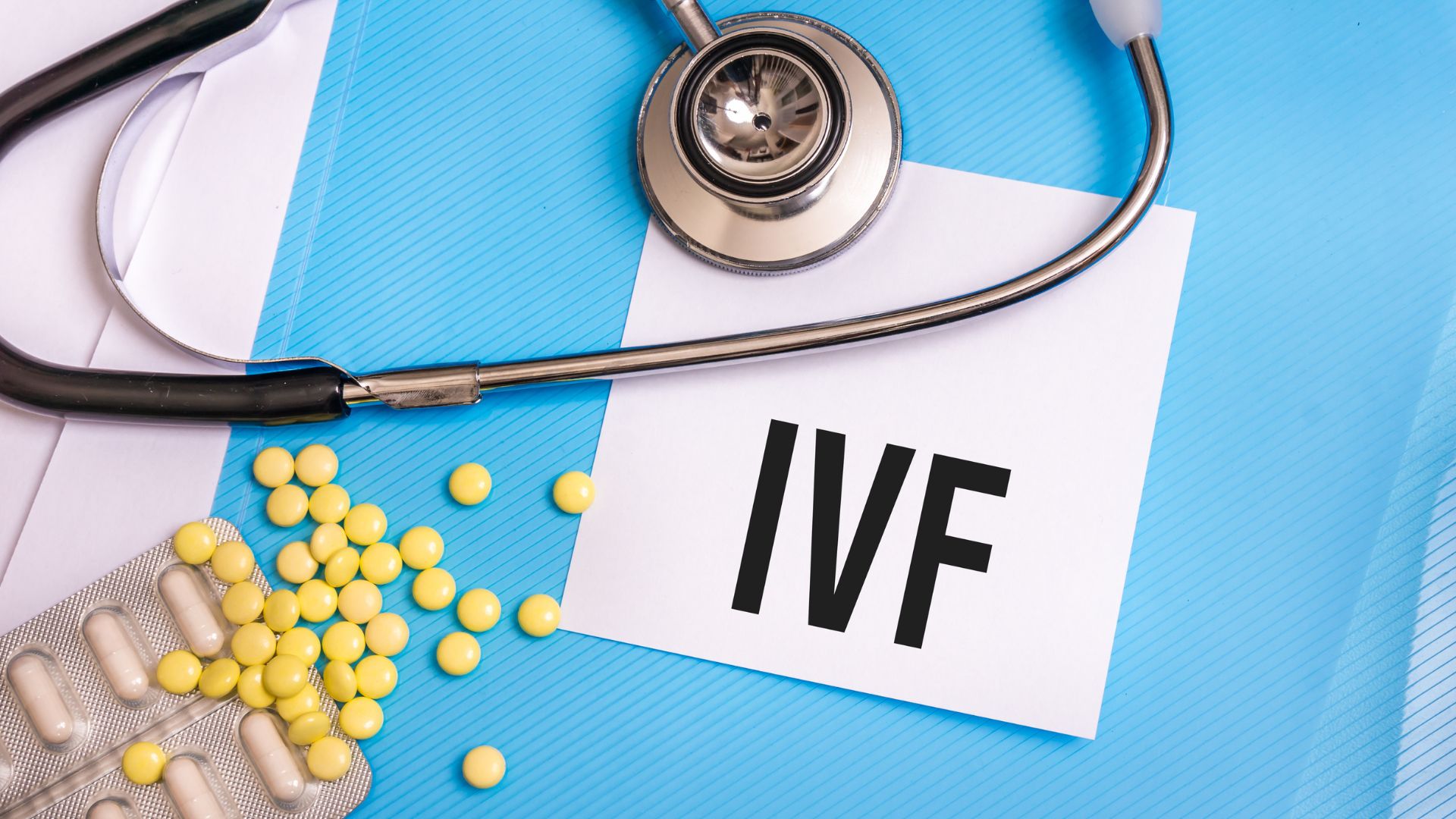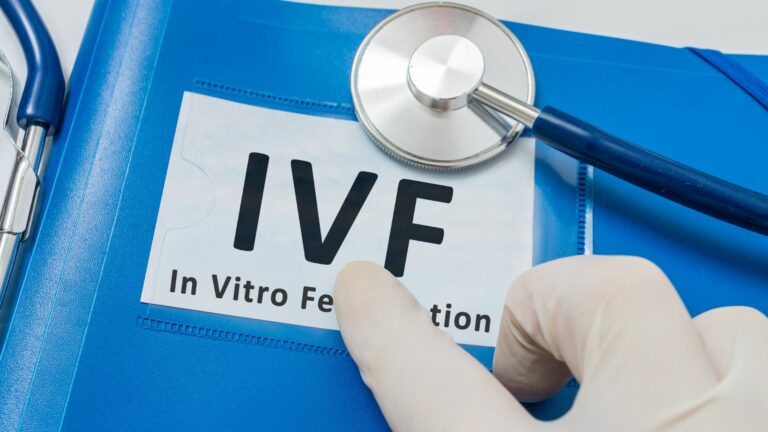
Few journeys in life predictably evoke a flurry of emotions as the path to parenthood. While for some, this voyage might be a smooth sail, for others, it might be an odyssey of constant battles against obstacles.
If you find yourself on this turbulent voyage and are in your mid-30s or older, it’s natural to find the added pressure of age intimidating.
Understanding fertility treatment options, particularly In Vitro Fertilization (IVF), becomes significantly crucial. Sorting through the deluge of information and sometimes conflicting advice online can be a formidable task.
It is here that we aim to offer you an honest and comprehensive guide. Though we won’t sugarcoat the realities, we strive to leave you with knowledge, and more importantly, a sense of empowerment.
Age and IVF Success Rates
One of the first concerns when venturing into the IVF process often revolves around the potential success rate. Our age casts a significant influence on this rate, and here’s an attempt to unravel exactly why and how.
In a woman’s reproductive journey, her age is linked closer to her egg quality and quantity. As we age, both the number and quality of eggs decline.
Though this process is nature’s design, it makes achieving a successful pregnancy harder—even with the assistance of IVF.
Furthermore, the risk of chromosomal abnormalities escalates with age. The increased risk contributes to a higher likelihood of either miscarriage or genetic conditions that may manifest later. Through procedures like Preimplantation Genetic Screening, these risks can be mitigated to an extent during IVF.
As we tread through the numbers to better understand this relationship, it becomes evident that the success of IVF generally sees a gradual decline as the age increases:
- Under 35 years: 40-50%
- 35-37 years: 30-35%
- 38-40 years: 20-25%
- Over 40 years: 10-15%
However, these statistics represent broad estimates. Individual success rates can and do vary, sometimes drastically, depending on various health factors.
Health and IVF Success Rates
While age is a major factor, various health conditions can also profoundly influence the outcome of IVF treatments. Let’s explore some prevalent health issues and their potential impact on IVF success rates.
Endometriosis
The presence of endometrial-like tissue outside the uterus, known as endometriosis, can severely affect fertility. This aberrant tissue growth may affect egg quality, disrupt implantation, or lead to an altered ovarian response to fertility medication.
However, with tailored IVF protocols and possibly additional surgeries like laparoscopy, many women with endometriosis still conceive successfully.
PCOS (Polycystic Ovary Syndrome)
PCOS is a hormonal disorder that can lead to infrequent or prolonged menstrual periods or excess male hormone (androgen) levels. Women with PCOS typically experience irregular ovulation, which can complicate conception efforts.
Fortunately, IVF can be particularly effective by bypassing the ovulation process. Each PCOS case is unique, so discussing your situation with a specialist is paramount. Learn more about PCOS and IVF.
Uterine Fibroids
These noncancerous growths in the uterus—fibroids—can sometimes interfere with embryo implantation. Factors such as the size, number, and location of the fibroids play into how they impact fertility.
In some scenarios, a surgical procedure called myomectomy to remove fibroids may be recommended before proceeding with IVF.
Low Ovarian Reserve
Possessing a lower number of eggs (also called low ovarian reserve) can be another hurdle. The lowered reserve affects the number of eggs retrievable during an IVF cycle, influencing the cumulative chance of success. Techniques like oocyte retrieval are tailored to maximize the potential of every available egg.
Other Health Conditions
Chronic conditions like diabetes, autoimmune diseases, heart issues, and thyroid imbalances may also affect IVF success. A comprehensive health evaluation and proactive management of these conditions are often undertaken to improve IVF outcomes.
Given the delicate interplay between IVF and these health conditions, choosing a clinic and specialist that can offer bespoke treatment plans is essential—providing you with a thoughtful and well-informed approach to fertility care.
More about health factors and IVF success
Navigating the emotional landscape of fertility treatments is a significant part of the journey ahead. In our subsequent sections, we’ll be addressing the psychological dimensions and support available, rounding off with financial considerations and alternative paths to parenthood.
Let’s continue together on this path, enlightening ourselves with both the scientific truths and the support to carry us through. Stay tuned for our next segment, a compassionate look at the emotional saga inherent to the IVF journey.
Find support here.
The Emotional Rollercoaster of Fertility Treatments
The facets of IVF are not exclusive to physical and medical realms. The emotional toll it can take on individuals and couples is significant and merits its own discussion.
Fertility treatments can be a source of hope, but they can also instigate a whirlwind of emotions, ranging from hope to anxiety.
Stress and Anxiety
It’s almost inevitable to feel stress and anxiety at various points during IVF. The rollercoaster of emotions can challenge even the most resilient.
Coping with a succession of treatments, injections, ultrasounds, and the two-week wait post embryo transfer can be emotionally taxing.
Strain on Relationships
The stress of infertility can also strain the strongest of relationships. It’s crucial for partners to communicate openly and support one another.
Finding a safe space to express the myriad of feelings, both positive and negative, can help fortify your bond during this challenging time.
The Grief of Unfulfilled Parenthood
Fertility challenges often include grieving for unfulfilled dreams of parenthood. Each negative pregnancy test can feel like a loss, each passing cycle a missed opportunity. Allow yourself and your partner to grieve these losses and seek help when they become overwhelming.
Finding Support and Solace
Navigating your emotional health is just as important as managing your physical health during IVF. It’s critical to seek support, perhaps beginning with a therapist specializing in fertility issues.
Support groups, whether online or in person, provide an invaluable network composed of those who truly understand the unique challenges of this journey.
For those seeking further :
Read on to learn more about preparing for your IVF journey, both financially and emotionally.
Navigating Financial Commitments and Considering Alternative Paths
Embarking on IVF is not just about emotional investment and overcoming medical hurdles; it’s also about the financial implications that come with it. Understanding the costs associated with IVF is a necessary step before delving into the process.
Understanding IVF Costs
The journey through IVF is steeped not only in emotional and physical aspects but also in financial realities.
The cost of IVF can be significant and varies depending on numerous factors, from the number of cycles needed to the type of medications prescribed, and sometimes the utilization of additional technologies like Intracytoplasmic Sperm Injection (ICSI) or genetic screening. Be sure to explore all potential costs and financial planning tips from reliable resources.
Exploring Fertility Assistance on a Budget
For many, the financial aspect of fertility treatments is daunting. Yet, several paths can make IVF more budget-friendly, including exploring insurance coverage, seeking out fertility assistance programs, considering treatment at less expensive clinics without compromising quality, and exploring medication savings programs.
Emotional Preparedness and Alternative Family-Building Options
It’s equally important to consider your emotional readiness. The realities of IVF, like the potential for multiple pregnancies or the possibility of a cycle failing, require a degree of resilience and preparedness.
Furthermore, it’s worth discussing alternative paths to parenthood early on, including IVF with donor sperm or donor eggs, adoption, surrogacy, and more. This way, you can evaluate all possible outcomes and create a plan that aligns with your hopes and values.
After IVF – Considering Costs and Continuing Care
IVF doesn’t end after embryo transfer or even after a successful pregnancy. Consider the costs that come after IVF, like prenatal care, birth costs, and postnatal care. Planning for these will give you peace of mind moving forward.
Conclusion
In the vast and intricate terrain of IVF, numerous variables influence the journey to parenthood. Age and health factors play undeniable roles in determining the likelihood of successful treatment outcomes.
However, intertwined with these are the emotional, relational, and financial elements that need equal attention.
A Final Note of Hope and Empowerment
Although we’ve traversed through a wealth of statistical data and realistic outcomes, one must remember that every IVF journey is unique. There is a myriad of success stories that triumph over the odds, and yours could be one of them.
As you contemplate the way forward, remember the pivotal role that a good fertility specialist plays. Your specialist is not just a provider of technical expertise but a guiding consultant through the entire course of your IVF treatment. Prepare your questions and engage with your doctor – your advocate and ally in this journey.
In the end, striving for parenthood through IVF is a testament to hope, the resilience of the human spirit, and the remarkable advancements of medical science. Stay informed, seek support, and empower yourself to make the decisions that are right for you.






